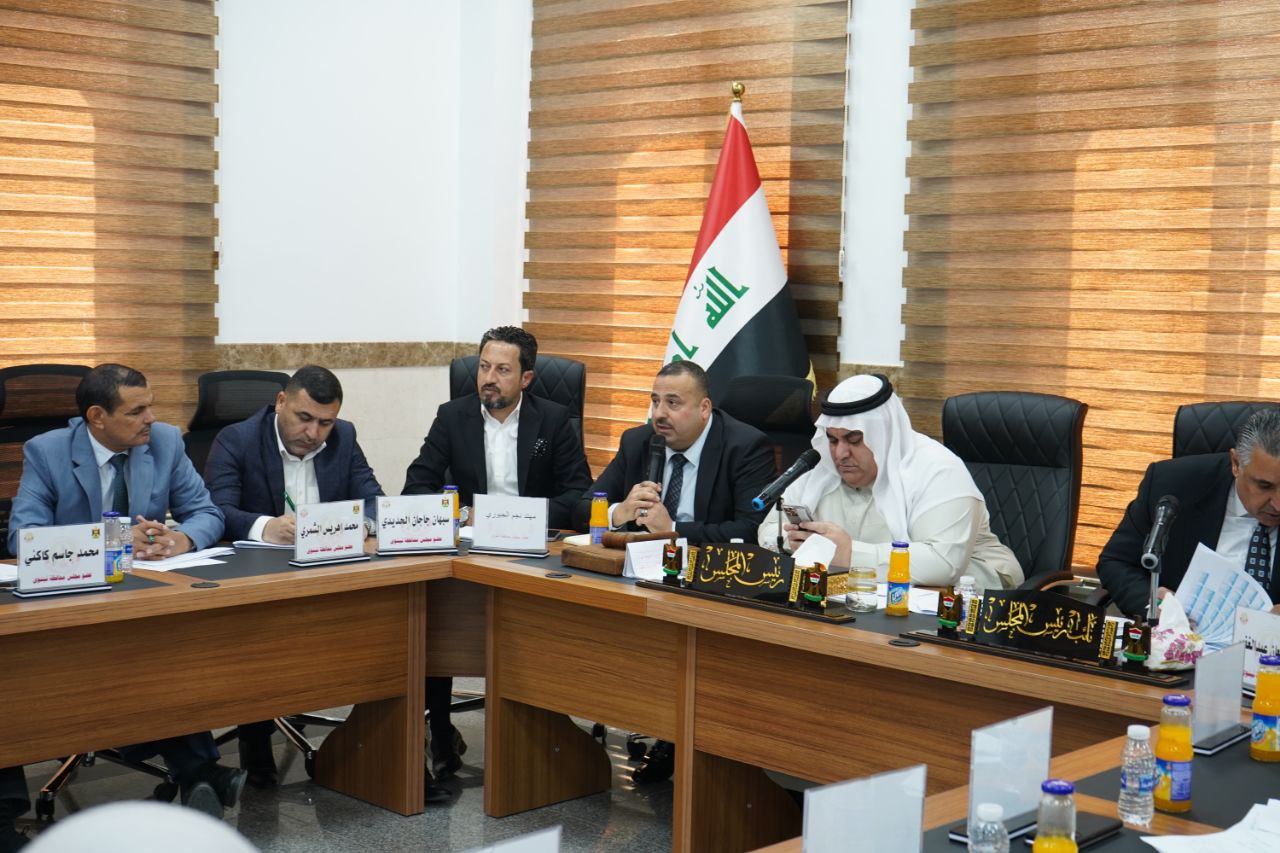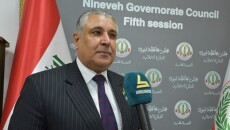After three months of disagreements, members of the Nineveh Provincial Council held a regular session in which several service issues were discussed, but a final agreement on appointing heads of administrative units was not reached.
Only three out of the total 29 members were absent from the session held on Tuesday, October 8, to discuss the appointment of mukhtars, service projects, and completing the formation of permanent committees.
Following the meeting that lasted several hours, the head of the Nineveh Provincial Council, Ahmed Al-Hasoud, thanked all participating blocs. In a press conference attended by a correspondent of (KirkukNow), he stated that "the session was for the public benefit and will be a good omen for the council."
The Nineveh Provincial Council has been divided into two fronts since last July, failing to hold regular sessions and address citizens' demands and projects due to disagreements over position distribution among blocs.
The crisis arose after the Future Nineveh Alliance, elected the heads of the administrative units holding 16 out of 29. This faction comprises the Coordination Framework forces, the Patriotic Union of Kurdistan PUK bloc, Sunni members, and three minority quota members.
The United Nineveh Alliance and the Kurdistan Democratic Party KDP bloc, holding 13 seats, boycotted meetings and filed complaints with the Supreme Federal Court.
The Presidency of the Council was elected months ago as part of a single package with the positions of the governor and his two deputies, according to an agreement between all the blocs, including the United Nineveh Alliance.
Provincial Council member for the United Nineveh Bloc and head of the Energy Committee, Ahmed Mohammed, stated to (KirkukNow) that "the session focused entirely on service. We will be the first to attend any service-oriented session beneficial to Nineveh province. We do not only participate in politically-oriented sessions."
Mohammed denied that the issue of electing heads of administrative units was discussed, mentioning that the issue has been referred to the Administrative Court for resolution.
The KDP also participated in the session. They hold four seats in the council, and according to electoral entitlement, were allocated the position of a district mayor, directors, and five sub-district mayors in Nineveh Province.
Mohammed Haris, a council member from the Future Nineveh Alliance, informed (KirkukNow) that "there is an agreement on the heads of the administrative units, with only minor changes in some positions."
He noted that all blocs participated in the session due to its focus on services, stating, "Services are a red line for the council, so all political blocs were present."
The heads of the administrative units who were elected have not yet received orders to begin their duties by the governor. If the governor objects and the council insists on its decision, the case will be referred to the Supreme Federal Court.
The head of the provincial council stated in the press conference that the blocs had nearly reached a consensus on the heads of the administrative units, with disagreements over a paragraph or two.
The positions of the Nineveh Provincial Council and the local government, including the council president, the governor, and their deputies, were decided in February 2024 by consensus among the blocs.
According to a statement issued by the provincial council, a committee has been formed to evaluate candidates for the positions of Mukhtars (representatives of neighborhoods and villages), and another committee will review projects for implementation based on fair distribution, priority, and importance.
The session also included the selection of deputies and members of five permanent committees, after the deputy chairman of the provincial council, Abdullah Al-Jibouri, expressed concerns that the stalled council sessions and incomplete committees had delayed many service projects awaiting the council's approval.
In addition to destruction, IS killed, kidnapped, and displaced thousands of civilians in Shingal, home for non-Muslim Ezii community, and Tala'afar from mid-2014 until the end of its rule in mid-2017.
The military operation to defeat IS in Iraq has resulted in almost $50 billion damage to houses, power plants, schools, and other civilian infrastructure in seven IS-occupied provinces (Anbar, Babil, Baghdad, Diyala, Kirkuk, Ninawa, and Salahaddin), an assessment by the World Bank WB found in 2018.
*This story has been produced as part of the 'Budget is Your Right' initiative, with support from the National Democratic Institute (NDI).






